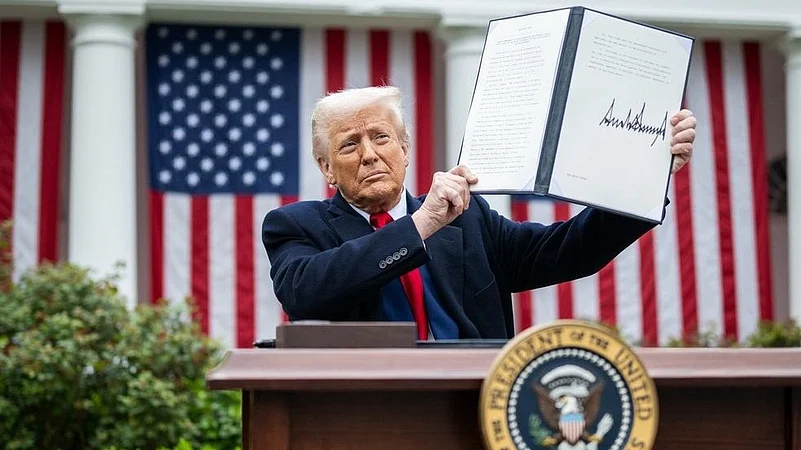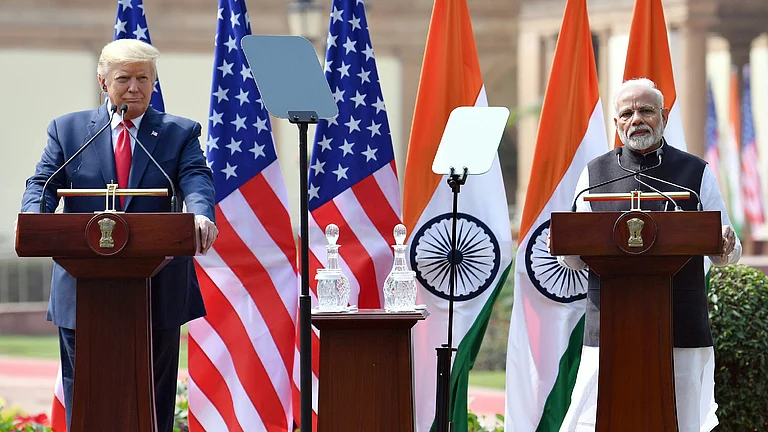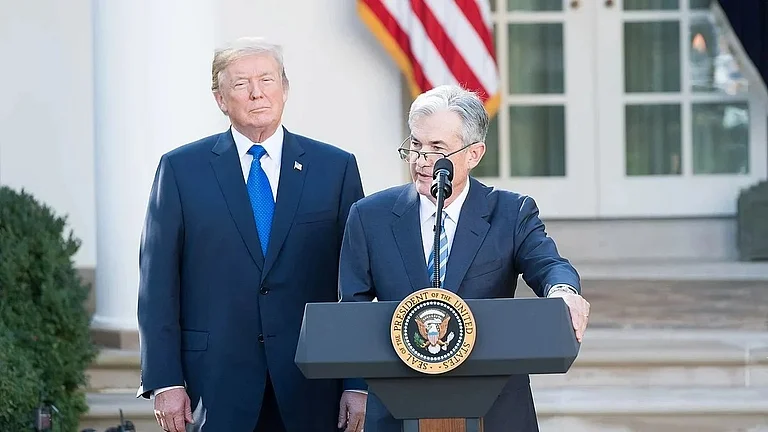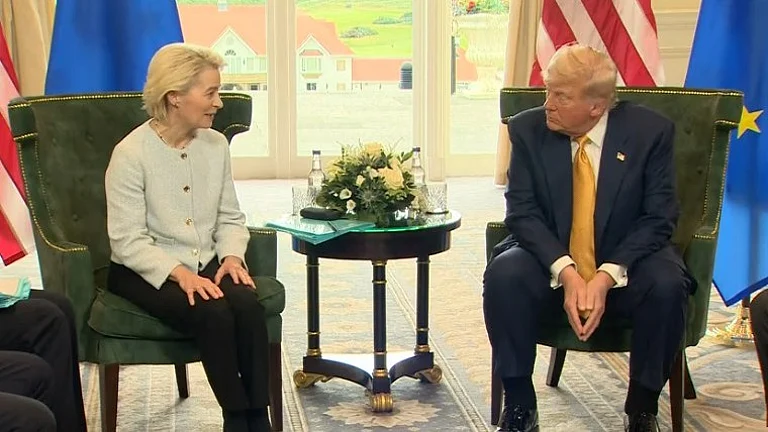A devalued dollar in such situations would give US exports a competitive edge, attract foreign investments and aid companies in setting up new plants and boosting domestic production.
Wall Street had previously expected a spike in the dollar after Trump’s takeover, however, the greenback has slipped more than 7% since the US President’s inauguration. The reversal on those expectations was in response to Trump’s protectionist policies and the worsening trade situation with China, which has put intense pressure on the greenback.
Escalating trade tensions between two of the world’s biggest economies and the sea of uncertainty surrounding Trump’s tariff plans has weighed heavily on the US dollar in recent times. Accordingly, the Dollar index has slowly retreated from a January peak of 110 to now breaking below the 100-mark to a low of 99.74 for the first time since July 2023.
Now while the greenback was usually seen as a safe haven where investors rushed for safety during uncertain scenarios, the setup this time around is a bit different. Devaluing the dollar is an intentional step in US President Trump’s playbook, which aims to shift focus away from the Wall Street to the Main Street. What that means is that Trump wants to discourage investments into the stock markets so that the real money can make its way into the economy to boost manufacturing and job creation.
In addition to that, growing concerns over an impending US recession due to Trump’s tariff offensive and disruption in the global economy have also taken the shine away from the dollar. Meanwhile, as investors move away from the US dollar as a safe haven, two currencies—the Japanese Yen and the Swiss Franc have turned into prominent safe-haven currencies as of now.
Trump’s recent flip-flops on the trade policy has heightened market uncertainty, with plans to impose aggressive reciprocal tariffs and fighting with China adding on to the pressure. As a result, investors have taken on a risk-off approach, dumping the dollar and opting for another safe haven currency or sticking wit he yellow metal.
Looking ahead, analysts at private equity firm KKR expects the US Dollar to likely stay weaker, while the Euro and Japanese Yen gather strength. “All else being equal, we see a closer proximity between the U.S. and the rest of the world, which could also affect flow of funds,” the PE house wrote.
































